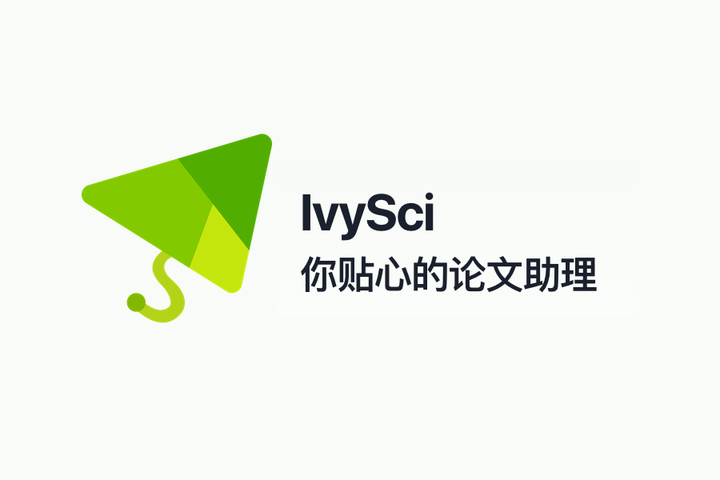The Influence of Foreign Loan Lender Guidelines on the Project Consulting Services Tender in Indonesia
DOI:
https://doi.org/10.35166/jipm.v8i1.101Keywords:
No Objection Letter (NOL), Procurement, Tender Process, Consulting ServicesAbstract
This study investigates the influence of the Saudi Fund for Development (SFD) guidelines on the tender process of consultancy services in Indonesia, specifically for foreign loan-financed projects. It investigates the differences between Indonesia’s national regulations, laid out in Presidential Decrees, and lender-specific guidelines, which are mandatory when external funding is used. This qualitative research applied interviews with actors holding decision-making authority within the procurement process. The data were examined through a thematic analysis using NVivo 12 software. Two significant differences between the SFD guidelines and Indonesia’s national regulations were established. First, a manual process is stipulated by SFD guidelines, yet an electronic platform is preferred by Indonesia’s regulations, which triggers extensive delays. Second, obtaining a No Objection Letter (NOL) from a lender for every phase of the tender process is a time-consuming demand that creates bottlenecks situation and prolongs the process. The research emphasizes that critical issues arise when balancing such differing sets of regulations, which are counterproductive for a smooth and timely process. Thus, harmonized national and lender-specific regulations are needed to minimize delays and accelerate a smooth process of service procurements.
References
Abduh, M., Sukardi, S. N., Wirahadikusumah, R. D., Oktaviani, C. Z., & Bahagia, S. N. (2022). Maturity of procurement units for public construction projects in Indonesia. International Journal of Construction Management, 23(13), 2171–2184. https://doi.org/10.1080/15623599.2022.2046941
Bekli, F. Y., Syahrudin, & Riyanny, P. (2010). Pengadaan jasa konsultansi proyek kerja sama pemerintah dengan swasta yang dibiayai oleh Islamic Development Bank. 1–12.
Endah, E. J. F. S. A., & Farista, W. R. H. (2018). Analisis komparatif efektifitas dan efisiensi e-procerement dalam proses pengadaan barang dan jasa. Jurnal Riset Terapan Akuntansi, 2(1), 16–24. https://doi.org/10.25046/aj050272
Faisal, N. I., Morasa, J., & Mawikere, L. M. (2017). Analisis sistem pengadaan barang dan jasa (penunjukan langsung) di dinas pekerjaan umum dan penataan ruang kota Manado. Going Concern: Jurnal Riset Akuntansi, 12(2), 1122–1132. https://doi.org/10.32400/gc.12.2.18613.2017
Firmansyah, A., Maulana, R. Y., & Miftah, A. Z. (2024). Transformation of the procurement system in the Indonesian government. Sosiohumaniora, 26(2), 56209. https://doi.org/10.24198/sosiohumaniora.v26i2.56209
Fithriyah, F. (2017). Merdeka menyikapi PHLN dan komitmen internasional. Jurnal Inspirasi, 8(2), 63–68. http://inspirasi.bpsdm.jabarprov.go.id/index.php/inspirasi/article/viewFile/104/73
Guruminda, H. B. (2019). Kajian penerapan tender cepat dalam percepatan proses pemilihan jasa konstruksi. Prosiding Seminar Nasional Pascasarjana, Departemen Teknik Sipil FT UI, Depok, 326–335. https://civil.ui.ac.id/wp-content/uploads/2023/05/326-335.pdf
Hamkah, H., & Purwanto, H. (2018). Kajian etika pengadaan barang/jasa pemerintah. Jurnal Simetrik, 8(2), 107–120. https://doi.org/10.31959/js.v8i2.182
Hasanah, H. (2017). Teknik-teknik Observasi: Sebuah alternatif metode pengumpulan data kualitatif ilmu-ilmu sosial. At-Taqaddum, 8(1), 21. https://doi.org/10.21580/at.v8i1.1163
Jumarni, F. (2018). Analisis komparatif efektifitas dan efisiensi e-procerement dalam proses pengadaan barang dan jasa. Jurnal Riset Terapan Akuntansi, 2(01), 16–24. https://jurnal.polsri.ac.id/index.php/jrtap/article/view/913
Kohler, J. C., & Dimancesco, D. (2020). The risk of corruption in public pharmaceutical procurement: How anti-corruption, transparency, and accountability measures may reduce this risk. Global Health Action, 13(sup1). https://doi.org/10.1080/16549716.2019.1694745
Leipold, K., Klemow, J., Holloway, F., & Vaidya, K. (2017). World bank e-procurement for the selection of consultants: Challenges and lessons learned. In K. V. Thai (Ed.), International Handbook of Public Procurement (pp. 511–526). Routledge. https://doi.org/10.4324/9781315092539
Moha, I., & Sudrajat, D. (2019). Resume ragam penelitian kualitatif. https://doi.org/10.31227/osf.io/wtncz
Nicoletti, B. (2018). New solutions for procurement finance. In B. Nicoletti (ed.), Procurement finance: The digital revolution in commercial banking (pp. 107–154). Palgrave Macmillan. https://doi.org/10.1007/978-3-030-02140-5_5
Pane, M. D. (2017). Aspek hukum pengadaan barang dan jasa pemerintah: Suatu tinjauan yuridis peraturan pengadaan barang dan jasa pemerintah. Jurnal Media Hukum, 24(2), 147–155. https://doi.org/10.18196/jmh.2017.0090.147-155
Peraturan Presiden RI No. 12 Tahun 2021. https://peraturan.bpk.go.id/Details/161828/perpres-no-12-tahun-2021
Peraturan Presiden RI No. 16 Tahun 2018. https://peraturan.bpk.go.id/Details/73586/perpres-no-16-tahun-2018
Peraturan Presiden RI No. 54 Tahun 2010. https://peraturan.bpk.go.id/Details/41063/perpres-no-54-tahun-2010
Ratnawati, A., Setiawan, A., Taufik, F. F., & Mansoni, L. (2020). Transparency of procurement process at the Ministry of Finance Republic of Indonesia. DijeFa Journal, 1(2), 218–230. https://doi.org/10.38035/dijefa.v1i2.268
Relucio, F. S., & Cruz, J. S. D. (2020, April). A procurement data standard tool for state universities and colleges. IOP Conference Series: Materials Science and Engineering, 803(1), 012005. https://doi.org/10.1088/1757-899X/803/1/012005
SFD. (2001). Procurement Guidelines.
Sarlina, Y. E. (2016). Performance analysis of foreign loans in directorate general of highways ministry of public works. Journal of the Civil Engineering Forum, 2(2), 85–94. https://doi.org/10.22146/jcef.26585
Setiawan, B., Hajji, A., Ariestadi, D., & Alfianto, I. (2024). Evaluasi keterlambatan proses pengadaan jasa konstruksi pinjaman hibah luar negeri SFD. Briliant: Jurnal Riset dan Konseptual, 9(2), 417–426. http://doi.org/10.28926/briliant.v9i2.1697
Suryani, A. (2016). Analisis pengaruh pinjaman luar negeri, surat utang negara, penerimaan pajak, dan inflasi terhadap defisit anggaran di Indonesia sebelum dan sesudah tahun 2000. Jurnal Online Mahasiswa Fakultas Ekonomi Universitas Riau, 4(1), 268–282. https://media.neliti.com/media/publications/183419-ID-none.pdf
Tanesia, R. K. (2016). Studi efektivitas pengadaan barang dan jasa pemerintah secara tradisional dan elektronik. Jurnal Teknik Sipil, 13(2), 126–133. https://doi.org/10.24002/jts.v13i2.648
Weerasekara, D. T., Disaratna, V., Withanage, K. T., & Perera, B. A. K. S. (2023). Procurement management in the foreign-funded construction projects implemented in Sri Lanka. International Journal of Construction Management, 23(7), 1118–1130. https://doi.org/10.1080/15623599.2021.1956674
Widjanarko. (2021). Improving foreign loan management performance post covid 19. Kewidyaiswaraan, 6(2), 167–176. https://doi.org/10.56971/jwi.v6i2.159
Downloads
Published
Issue
Section
License
Copyright (c) 2025 Journal of Infrastructure Policy and Management (JIPM)

This work is licensed under a Creative Commons Attribution-ShareAlike 4.0 International License.















